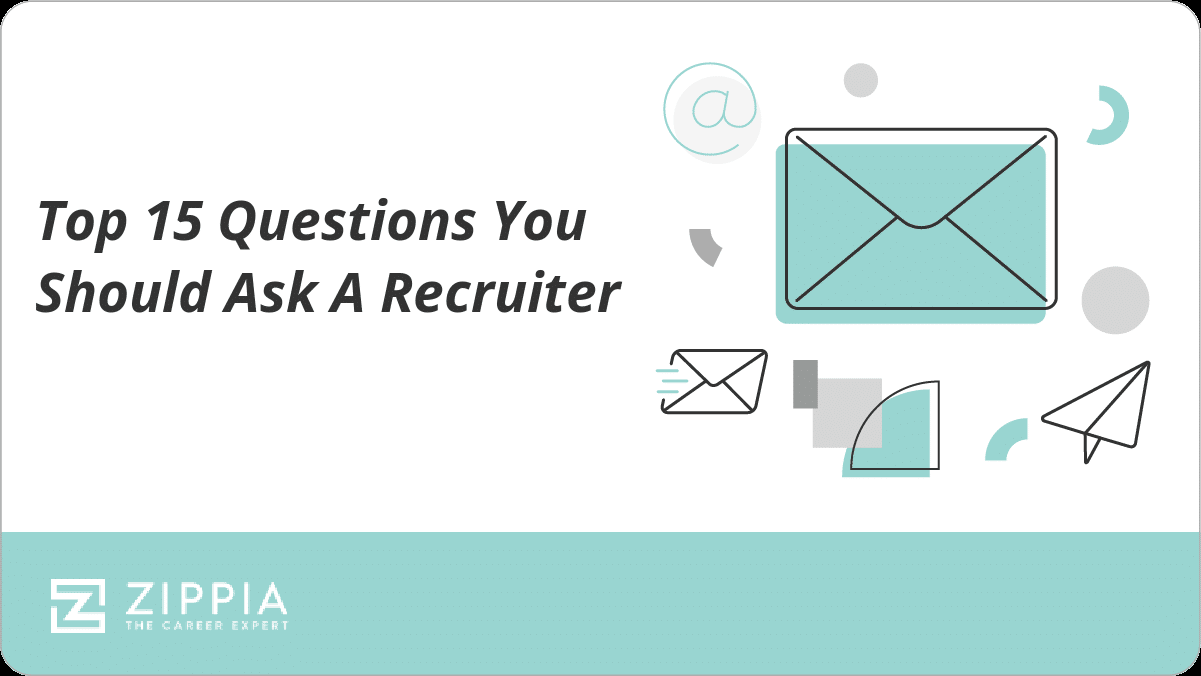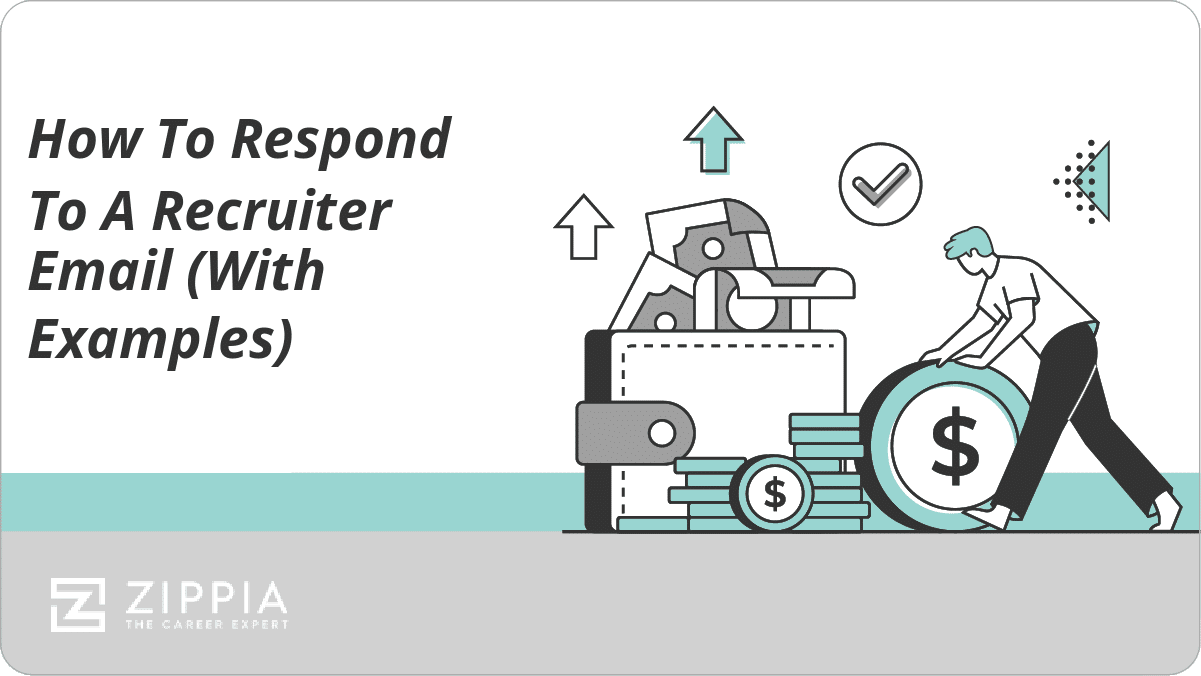- Working With Recruiters
- Staffing Agencies
- Career Fairs
Find a Job You Really Want In
If you’ve never been contacted by a job recruiter before, it’s easy to feel out of your element when one reaches out to you. They may send you emails, call you, or even message you on social media. If you’re paranoid like me, you may even be worried it’s some kind of scam.
While it’s completely normal to be nervous, or even apprehensive at first, talking to a recruiter can have worthwhile benefits. Often, a recruiter can be your gateway to a great job.
Like a job matchmaker, a recruiter will attempt to pair you with a company that they believe you’re highly qualified for. Among other things, they’ll offer you in-depth information about the position and allow you to ask important questions.
When you ask the right questions, you can get valuable information about the potential job that you wouldn’t be able to learn from anyone or get from anywhere else.
Key Takeaways:
-
Ask questions that give you a more detailed understanding of the opportunity.
-
Learn from the recruiter why the position is available, what the turnover at the position is like, and if there are other recruiters trying to fill the position.
-
Ask about the role and responsibility of the position.
-
Recruiters are paid to place people, so they should be willing to help you out as much as possible.
-
Make sure to clarify the next steps with the recruiter after speaking with them.

15 Questions to Ask a Recruiter
You should never be afraid to ask questions, especially when you stand to gain valuable information. For that reason, here are the top 15 questions you should ask a recruiter, as well as why you should ask them.
-
Why does the company need this position filled?
Your average job listing won’t give you information about why a company needs to hire someone for a particular position. Therefore, you can get inside information by asking a recruiter.
You may learn whether the position is newly created or if it needs to be filled because a previous employee left. In the case of the latter, you can inquire further and gain more information about how long the previous employee worked there, and if they left on good terms. Knowing this will help you understand the quality of the position.
For example, if the last employee who worked that position was promoted, that could be a sign of high upward mobility. On the other hand, if the previous employee/s only worked the position for a short period or quit to work somewhere else, those might be red flags.
-
What is the timeline for filling this position?
This question will give you an idea of the steps in the hiring process and how quickly the employer is looking to fill the position. When you understand the pace of the hiring process, you can be ready for additional interviews, tests, or wait times.
One of the main benefits of understanding the company’s timeline will be knowing when you’re wasting your time.
For instance, if you know the position needs to be filled as quickly as possible, you’ll be able to move on to a new opportunity if the company hasn’t gotten back to you in a week.
By contrast, if you have the steps explained to you, you’ll be able to evaluate the timespan of the process, and if that timespan suits your needs.
-
Why weren’t other candidates chosen?
While some recruiters may not answer this question, you can gain worthwhile insight if you’re able to receive an answer. For example, if you understand what the employer views as red flags, you can avoid those actions, traits, answers, etc., in an interview.
Instead of learning from your own mistakes, you can avoid making any by learning from the mistakes of previous candidates who weren’t chosen.
-
How did you find me?
Knowing how a recruiter found you can tell you which people, social media sites, websites, or any other professional platforms are giving you useful exposure. For example, if you know that a recruiter found you on LinkedIn, you can prioritize the appeal of your profile on that site.
-
Are there any changes I should make to my resume or cover letters?
Your resume and cover letters are your initial gateway into a position. With that in mind, gaining inside information on how to improve those documents from a recruiter can help you improve.
Many recruiters have seen hundreds of resumes and cover letters, so their professional experience with the best of the best and worst of the worst is valuable. After looking at your resume or cover letters, they may give you formatting, grammar, or content related tips.
Overall, when a recruiter offers you specific suggestions about improving your resume or cover letters, implementing them will be of great benefit to you.
-
What kinds of questions could I expect in an interview?
Knowing what kind of questions to expect in an interview can not only help you practice, but also give you an edge over other candidates. Luckily, recruiters will often have an idea of what kinds of questions you’ll be asked.
For instance, if your recruiter tells you that the hiring manager will likely ask about a time you had to show workplace prioritization skills, you can think of examples before you even go into the interview. Overall, answering any tough questions will be far easier when you’re able to prepare.
In some cases, a recruiter may even help you practice interviews by playing the role of a hiring manager. This opportunity allows you to further hone your interview skills and be one of the most beneficial aspects of working with a recruiter.
-
What do you know about the hiring manager?
Asking this question can give you an idea of what your interview will be like. If the recruiter knows the hiring manager, they can tell you about the hiring manager’s interview style, reputation, experience, pet peeves, etc.
Knowing this information will allow you to go into your interview fully prepared to deal with whoever’s on the other side of the desk.
Additionally, you can create a more personalized cover letter when you know information about the hiring manager. Doing so could be the edge you need to land an interview in the first place.
-
What can you tell me about the company culture?
Knowing whether or not you’ll fit in with your new company and co-workers is an important part of any job. Fortunately, many recruiters can tell you about a company’s culture.
By asking this question, you can understand if the company is team-oriented or more individualistic, formal or casual, and fasted-paced or low-pressure, among other things. These details can help you gauge how your personal culture will blend with the company’s culture.
-
What do you know about the salary for this position?
Receiving fair and worthwhile compensation is one of the most important aspects of any job. Keeping that in mind, attempting to gain insight about a job’s salary from a recruiter can inform you on whether or not you should pursue the position.
If you’re aware of a specific salary, you can analyze the numbers and compare them to your current work-life balance.
Additionally, when you understand a company’s average salary, as well as what you’re worth, you can negotiate with confidence.
-
Are you the only recruiter working for this company, or are there others?
Asking this question can give you a better idea of how competitive the position is. After all, if there’s only one recruiter and they’re looking at you, your odds of being chosen for the position are much higher.
On the other hand, if the recruiter tells you that they’re not the only one working for the company, you’ll know that it’s even more important to hone your application. When you have to compete with multiple highly qualified candidates, it’s vital that you set yourself apart. Luckily, a recruiter will be invested in helping you with this.
-
How often do you communicate with the employer?
When you work with a recruiter, you’ll stand a better chance of gaining information and being chosen for the job when there are regular, open lines of communication between the employer and the recruiter.
With that in mind, you should only work with recruiters who regularly communicate with the employer, so their assistance is as helpful and accurate as possible.
-
What are the top 3 skills and qualifications the hiring manager is looking for?
Receiving an answer to this question will allow you to improve your resume and interview presence.
For instance, if a recruiter tells you that the company’s hiring manager is looking for someone who is team-oriented, has a bachelor’s degree, and at least five years of experience working with Photoshop, you’ll be able to highlight those skills and qualifications.
-
Does this company/position have a noticeable turnover rate?
Generally speaking, getting involved in a position that has a high turnover rate can be a major mistake. Typically, jobs with higher turnover can be a sign of overworking, lack of pay, and underappreciation from the company.
When you inquire about the turnover rates before your interview, you can evaluate the challenges that come with the position and then decide if it’s worth accepting the job offer.
-
Can you give me a more detailed job description?
Job descriptions are pretty cut-and-dry, but in some cases, a recruiter can give you more insight into a certain position’s details. After all, job descriptions posted on a website rarely give you an idea of what your day-to-day tasks will look like.
Luckily, a recruiter might be able to tell you about specific responsibilities you’ll have and give you information about what you’ll be doing on the job.
-
Do you have any concerns about me or my qualifications?
Constructive criticism can be extremely useful, especially when you’re going to be evaluated by a hiring manager. When you consider that most recruiters work closely with employers, knowing the recruiter’s concerns about you will give you insight into the employer’s preferences.
Once you know your weaknesses, you can work on presenting the best version of yourself to the employer.
What Role Does a Recruiter Play in the Job Hiring Process?
Typically, when companies have a specific position they want filled (especially when that position requires a detailed list of qualifications), they may use a recruiter to find potential employees. In this way, a recruiter will assist the company by identifying the ideal candidates.
It’s important to note that most recruiters won’t be paid unless they find the candidate that the company chooses to hire. Therefore, they’ll work hard to find an amazing match.
Considering that, if a recruiter has contacted you, there’s no doubt that you have the skills and qualifications for the job in question.
Remember that a recruiter will be well aware of various details about the job or company they’re assisting, many of which you’d never learn from a basic job description, so you can use their knowledge to your advantage.
They can give you extensive information about turnover rates, company culture, and many other vital aspects of the position.
When recruiters spot you as a candidate, they’ll also dedicate time to helping you prepare. Knowing this, you can gain valuable insight on how to improve your resume and cover letters, as well as hone your interview skills.
When you consider all of these benefits, working with a recruiter can be a great opportunity, even if you’re unsure of the job.
What To Do After Speaking With A Recruiter
After speaking with a recruiter, it is now time to decide whether or not you want to move forward. This is why asking the recruiter questions is so important. Hopefully the recruiter’s answers will give you an idea of the job.
If you are not interested, it is good to let the recruiter know as soon as possible. If you are looking for other opportunities, let the recruiter know. They may have other positions in the future that could be a good fit for you, so try to keep a connection with the recruiter.
If you are interested, ask the recruiter about the next steps. The recruiter will likely submit your application and arrange an interview. That is about as far as they can go, they obviously cannot offer you the job.
However, they may help you try to land the job. They may ask if it is ok if they edit your resume. If you are comfortable, let them do it, since they have an idea about what needs to be tailored for the position.
The recruiter should let you know. if they will schedule an interview for you or the hiring manager will reach out. Make sure to clarify what your responsibilities are moving forward. It varies case by case, so hope for a helpful recruiter, but prepare for one that places most of the next steps on yourself.
As always, prepare your cover letter, resume and for your interview .
- Working With Recruiters
- Staffing Agencies
- Career Fairs





